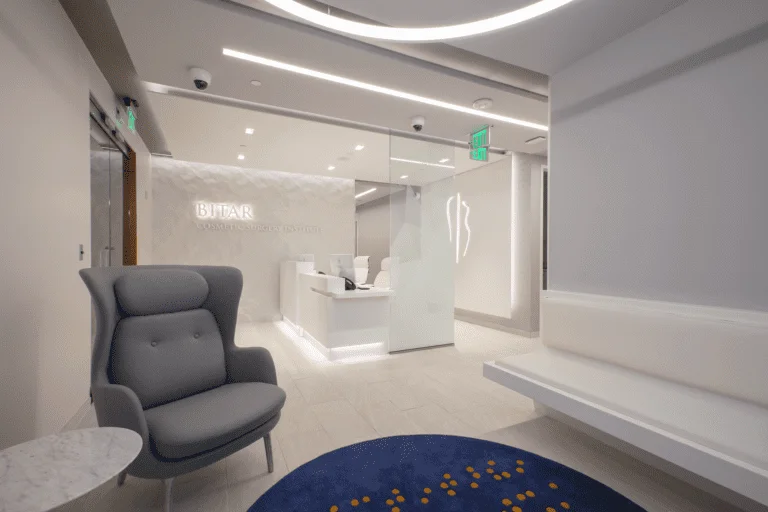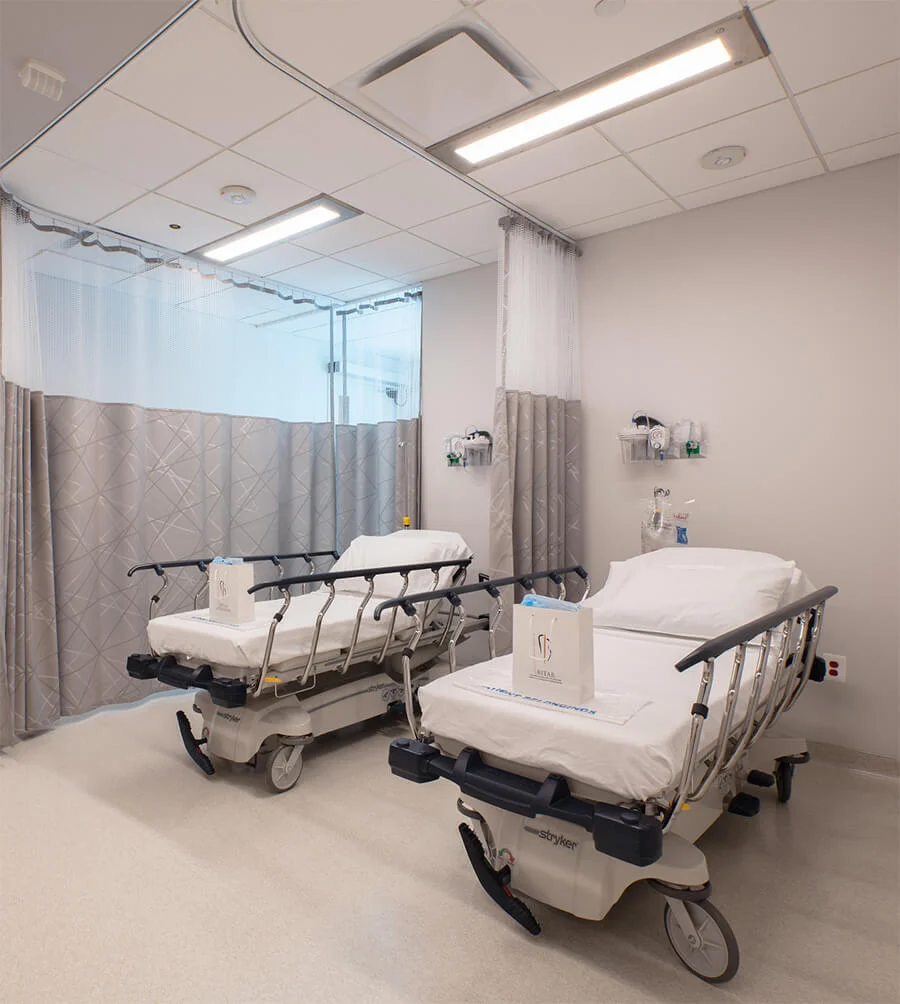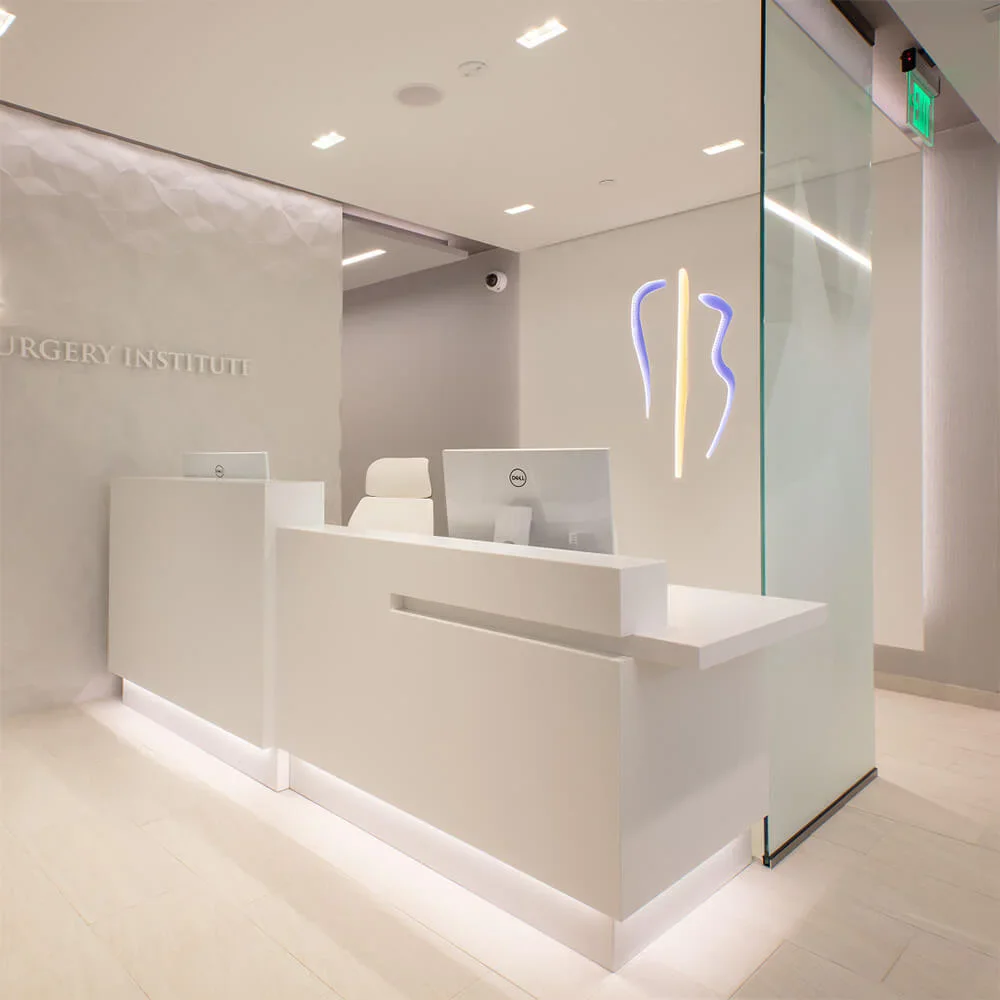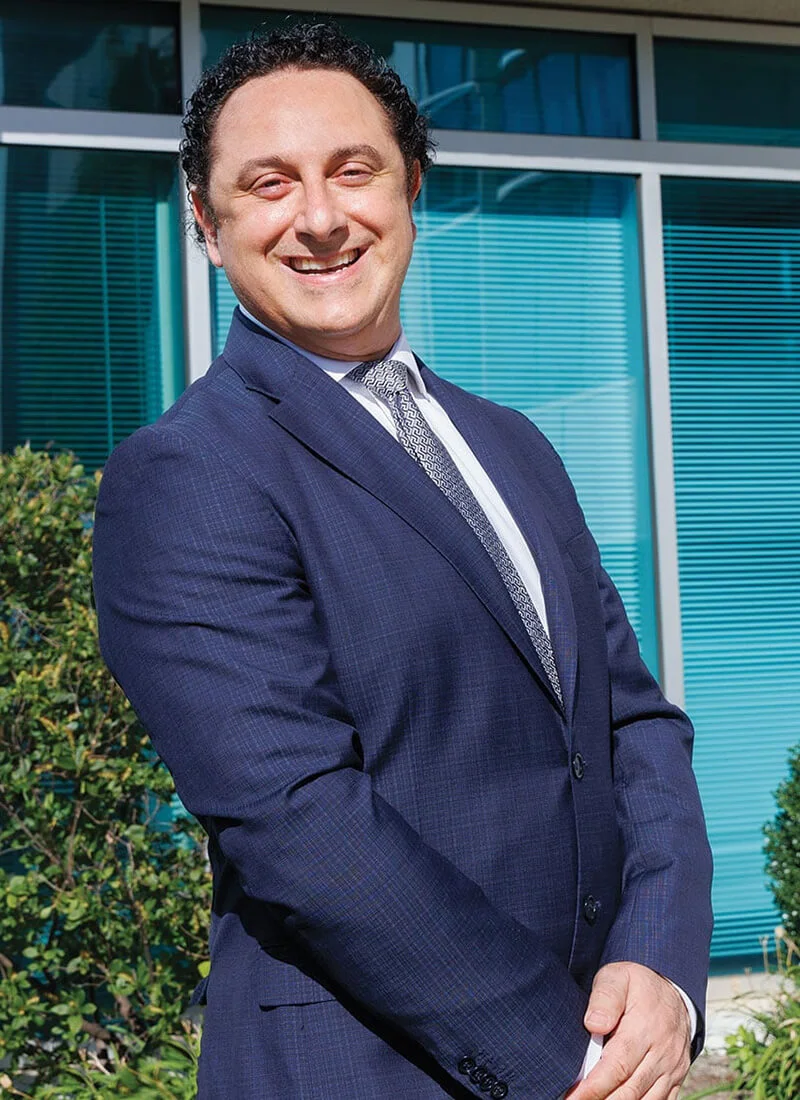Dr. George Bitar, MD, FACS, is an award-winning, fellowship-trained plastic surgeon board-certified by the American Board of Plastic Surgery (ABPS). He is an active member of the American Society of Aesthetic Plastic Surgeons (ASAPS) and the American College of Surgeons (FACS) and is a Castle Connolly Top Doctor and a Top US News and World Report Doctor. Dr. Bitar offers a compassionate approach, focusing on nuanced outcomes tailored to each individual’s goals and wishes. He has performed over 20,000 successful cosmetic surgeries and has been recognized as one of the top providers in the Washington, D.C. metropolitan area. Dr. Bitar completed an elite breast surgery fellowship, receiving in-depth training from the most experienced surgeons in the field, including Dr. Ivo Pitanguy in Rio de Janeiro, Dr. Marchac in Paris, Dr. Mendelson in Melbourne, Dr. Widgerow in Johannesburg, and Dr. Ellenbogen in Beverly Hills.
At the Bitar Cosmetic Surgery Institute, we take pride in providing our patients with the best possible surgical experience, emphasizing safety while optimizing surgical outcomes. This process includes comprehensive preoperative preparation and patient education, the development of a personalized operative plan, and a thoughtful postoperative care regimen that emphasizes patient comfort and promotes recovery.
The Institute has adopted several strategies to further ensure patient safety. We are selective and only offer surgery to patients whose overall health and lifestyle choices allow for healing and facilitate recovery. To minimize risk, we require a thorough preoperative assessment that includes a comprehensive history and physical examination, as well as targeted laboratory tests.
We operate at accredited hospitals and surgicenters that have demonstrated a commitment to the highest standards of care, employing board-certified anesthesiologists and nurses. We adhere to well-established surgical principles designed to ensure patient safety and have developed policies and protocols to minimize the risk of infection. Dr. Bitar is committed to continuing education, refining his skills, and introducing new techniques, all with the goal of enhancing safety and surgical outcomes.
We emphasize patient safety in our care plan, advocating early mobilization, optimizing nutrition, and providing detailed care instructions. After surgery, patients are seen in our office frequently and early, starting the day after their procedure, and a staff member is available around the clock for any questions or concerns. Our entire team is dedicated to our patients’ well-being, and every measure is designed to minimize potential complications, promote a comfortable and rapid recovery, and optimize surgical outcomes.







“Natural beauty but doing a little somethin’ somethin’ to make beautiful features pop is what the Model Lift™ accomplishes.”
–
Dr. George Bitar
Follow Us On Social Media